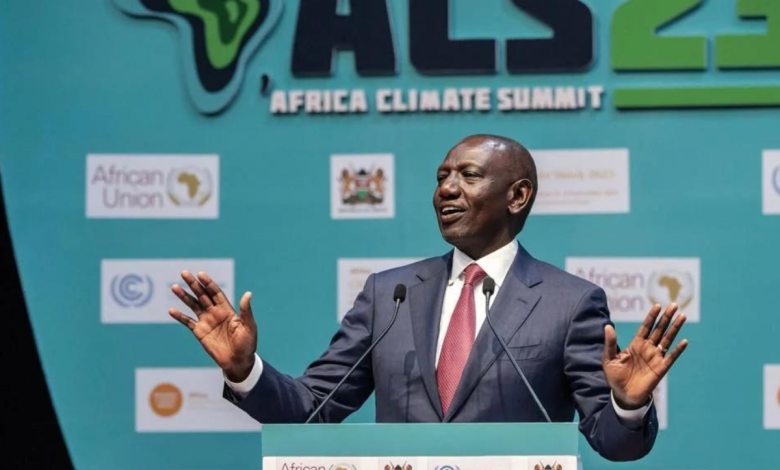Opinion
Analyzing the ‘Nairobi Declaration’ from the Africa Climate Summit 2023

The “Nairobi Declaration” was adopted after the Nairobi-based Africa Climate Summit 2023. Regarding climate change challenges, this declaration aimed to provide Africa with a cohesive voice in advance of significant international engagements. Activists, members of civil society, energy experts, and medical professionals have expressed concerns about the declaration’s inclusion and radicalism, which has elicited a range of reactions.
Also Read: Empowering the Global South in Climate Action
Key Highlights of the ‘Nairobi Declaration
- Reduction of Emissions: The declaration urges the international community to take steps to lessen emissions. The objectives of the Paris Agreement, in particular, bring Africa into line with the global effort to address climate change.
- Restructuring Financial Systems: The declaration’s call for the multilateral financial systems to be reformed is one of its main points. This addresses a critical issue for many African countries and calls for debt relief and debt restructuring.
- Climate Finance: The declaration stresses the significance of financial support for climate reduction and adaptation activities in Africa and calls on the international community to uphold its annual climate finance target of $100 billion.
- Green Investment: It emphasizes the possibility of sustainable economic growth while battling climate change by highlighting green investment opportunities in Africa’s developing blue and green economies.
- Carbon Tax: To lessen the carbon impact of these industries, the declaration calls for a “carbon tax on the trade of fossil fuels, maritime transport, and aviation.”
- Debt Relief: The declaration suggests extending loan payback terms and implementing a 10-year grace period to connect borrowed money with development objectives, given the difficulties many African nations have in repaying loans.
- The conference was a success in terms of commitments, garnering $23 billion in grants and investments for green growth, mitigation, and adaptation initiatives across Africa. These commitments are viewed as a positive step towards attaining the objectives of climate action.
Mixed Reactions and Criticisms
- Inclusivity: Critics argue that the summit’s proliferation of Western delegates compromised Africa’s push for climate justice, raising questions about the inclusivity of the event.
- Carbon Markets: The declaration’s backing of carbon markets has come under fire from campaigners who see it as a “bogus solution.” They contend that carbon markets permit affluent countries to keep polluting while offsetting their emissions there.
- Health Agenda: Despite the clear connection between climate change and health repercussions, health professionals voiced dissatisfaction that health-related concerns were left off of the summit’s major agenda.
- Insufficient Radicalism: Some critics, including Mohamed Adow, the Director of Power Shift Africa, lamented that the declaration did not demonstrate the radical vision they had hoped for in addressing climate change.
- Concerns Regarding Carbon Credits: Studies by think tanks like Power Shift Africa addressed the risks associated with carbon credits and the reasons why Africa shouldn’t utilize them, highlighting the fact that they might not considerably cut greenhouse gas emissions.
- Alternative Solutions: Critics emphasized the need for a more all-encompassing strategy and urged investigating alternative climate action solutions as opposed to relying on carbon markets.



